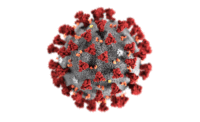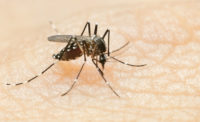Public health experts are bracing for the appearance of the Zika virus – which causes severe birth defects among pregnant women who’ve been exposed to it – in the United States. However, they predict that it will not have the same devastating effect that it’s had in South America and the Caribbean.
“We have not yet seen local transmission of Zika in the continental U.S.,” said Dr. Tony Fauci, Director of the National Institutes for Allergy and Infectious Diseases, in a CDC briefing last week. “By local transmission, we mean that a mosquito bites a person infected with Zika and that mosquito passes that infection on to another person through a mosquito bite. Zika is spread to people by the Aedes mosquito. They are common in parts of the United States, particularly southern states.”
Fauci said that makes Zika outbreaks likely in the U.S. but expects them to be limited, due to several factors:
- our urban areas are not as densely populated as areas in central and South America
- we have widespread use of air-conditioning and
- stronger mosquito control
Zika is a mosquito-borne virus that causes only mild illness in most people, who may experience fever, rash, joint pain, red eyes or conjunctivitis. It is rarely fatal, but appears to pose the greatest threat to pregnant woman who may deliver a baby with a serious brain injury after being exposed to it.
History of Zika
Zika was first recognized in 1947, according to Fauci. It has caused occasional illness in Africa and Asia, but the first serious outbreak of record ccurred in 2007 in the small Pacific island Yap.
“Last May, the first local transmission of Zika in the Americas was reported by WHO in Brazil, and by the end of the year, Brazilian authorities estimated perhaps a million suspected cases of Zika occurred there. Substantial illness seems to have been occurring last spring, and by this fall, Brazil authorities recognized a concerning increase in the usually rare, serious condition among newborns, microcephaly -- consistent with the idea that some of the mothers of these babies had been infected with the virus early in their pregnancy, potentially harming their developing baby.
Huge rise in brain disorder among babies
Brazilian health authorities initially reported more than 3500 cases of microcephaly in the past year, following the Zika outbreak there.
“Laboratory tests at CDC strongly suggest a link between Zika infection and some of the poor pregnancy outcomes,” said Fauci. “We understand this condition is devastating to the affected families, and that this ongoing outbreak is concerning to everyone, especially for pregnant women, their families who may travel or live in the infected areas.”
Health authorities in Brazil have also reported an increase in Guillain Barre syndrome, a rare neurologic disorder in which a person's own immune system damages nerve cells leading to nerve damage or paralysis that lasts for several weeks or several months. Most people fully recover, but it can take a few years to do so. CDC is currently working with public health officials in Brazil to investigate whether there's any link between Zika infection and Guillain Barre.



